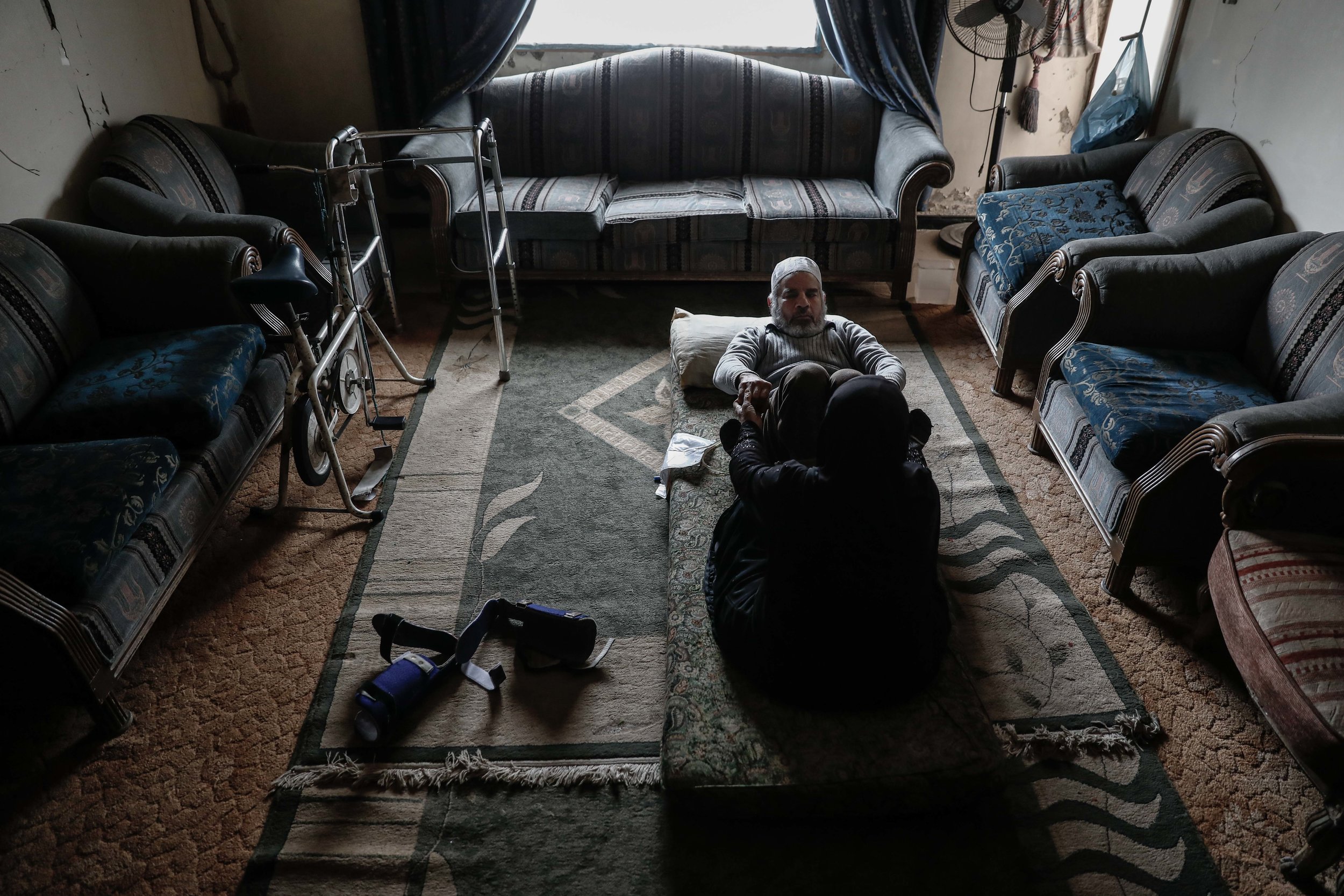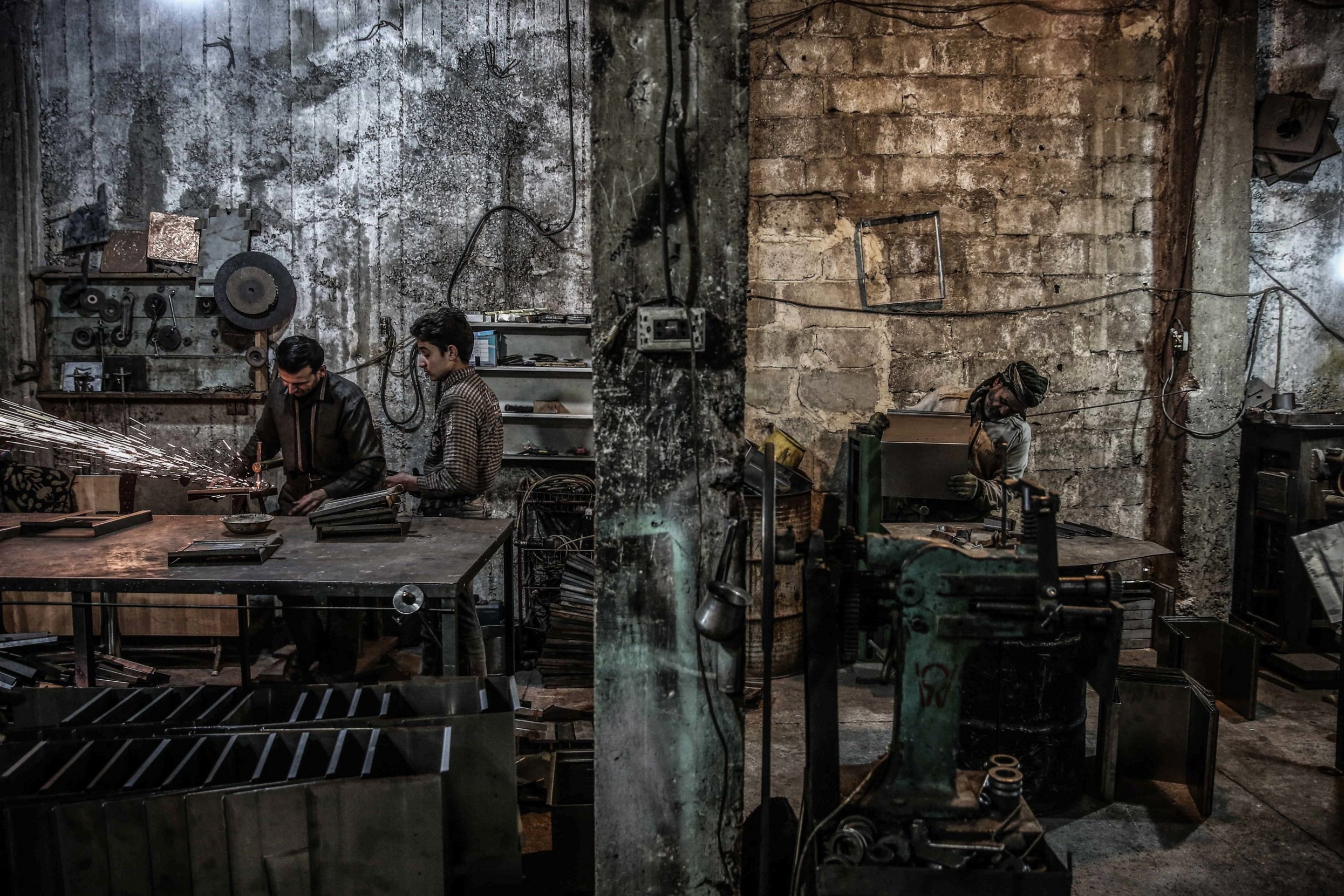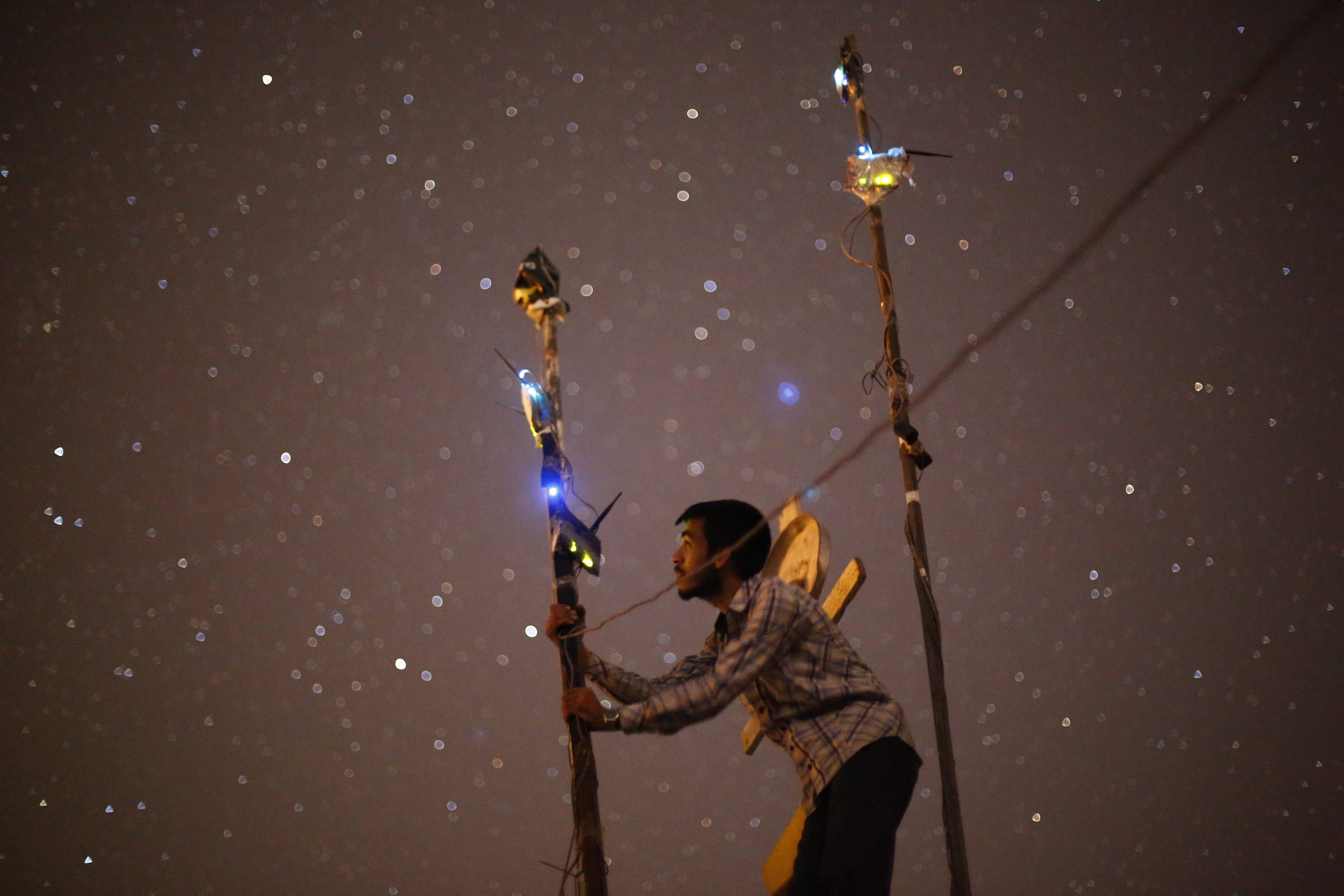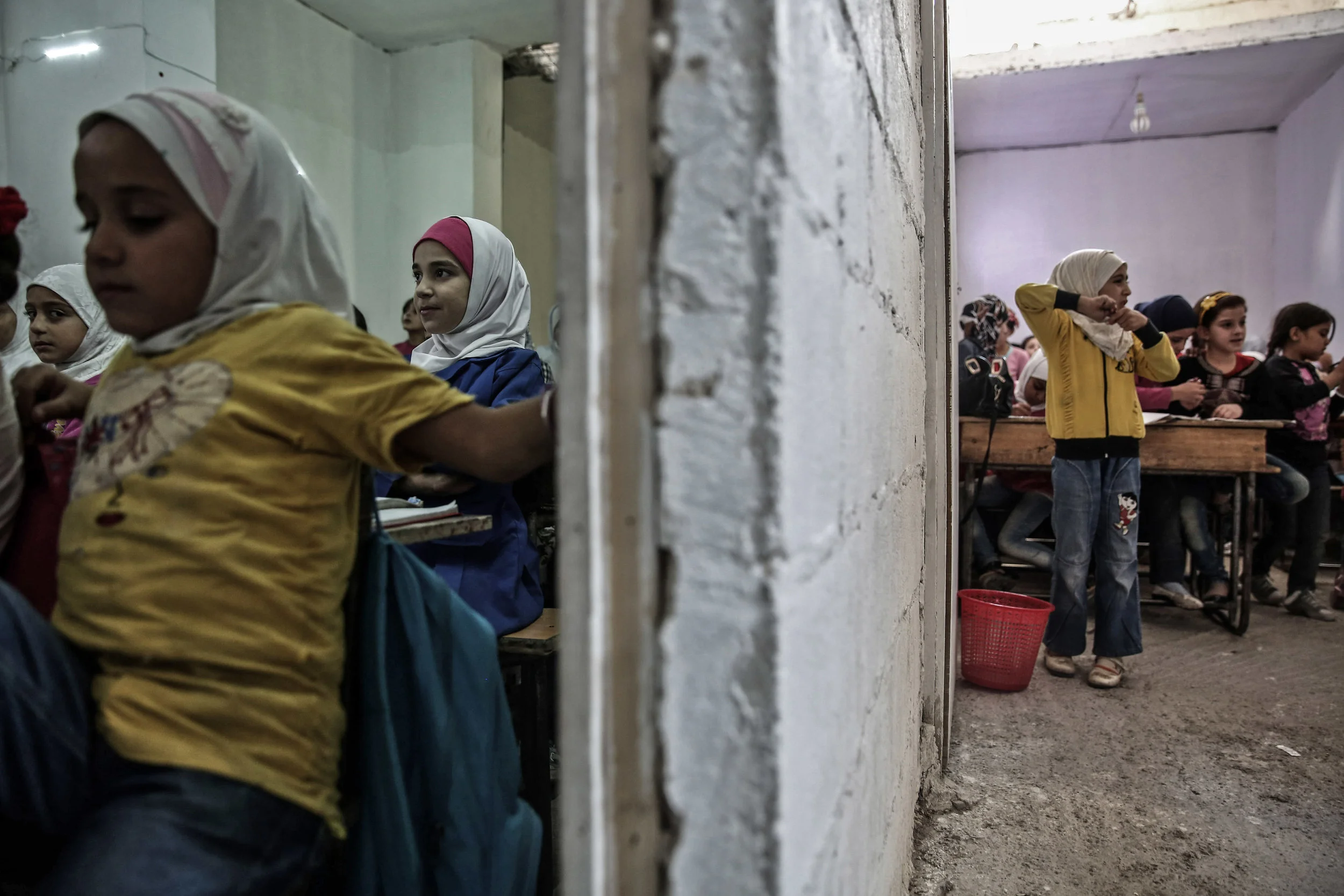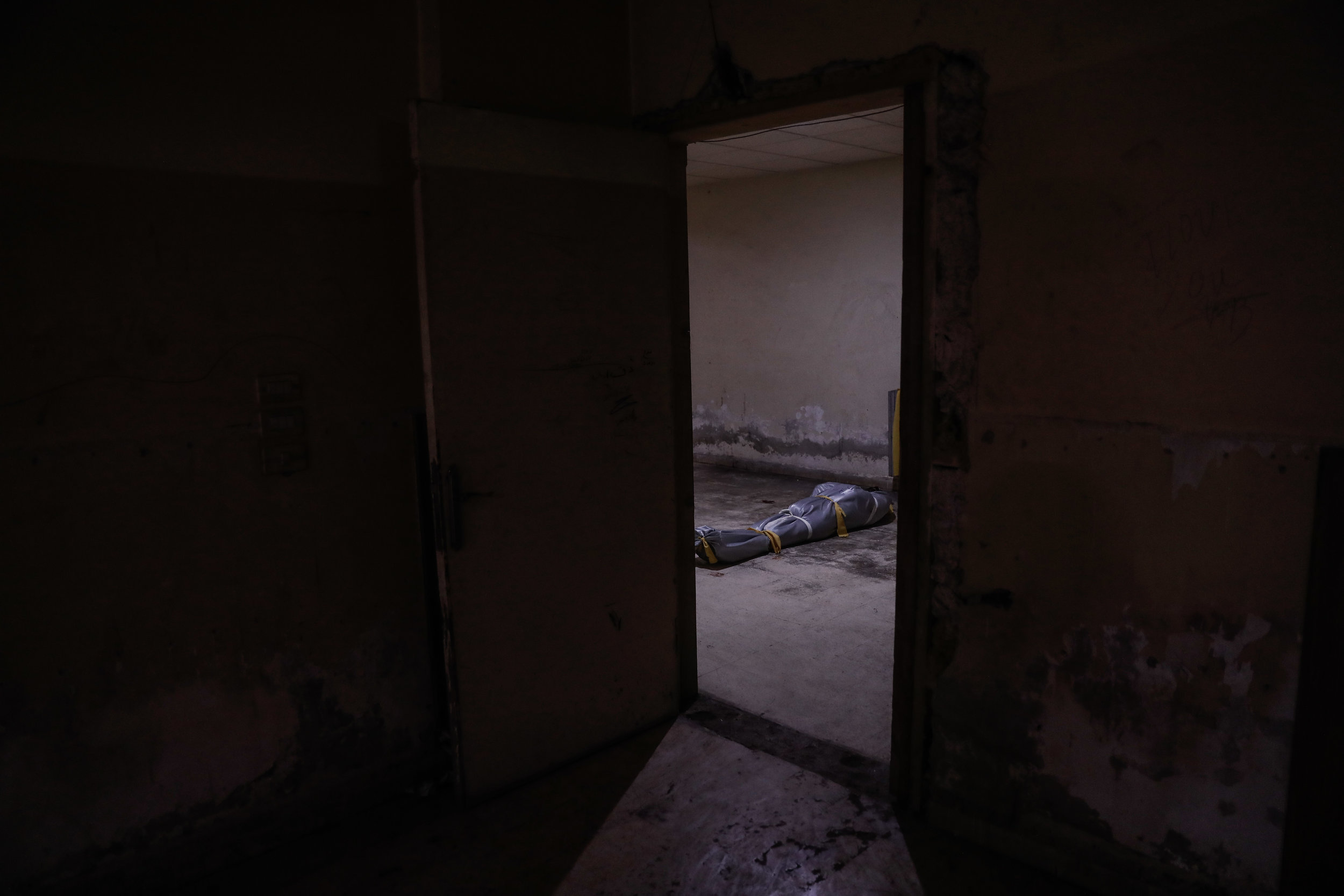The will of survival!
Two years after her injury, Um Mohammed had started to recover. However, just when her health was beginning to improve, her husband was injured in an airstrike, and thus lost his ability to walk normally.
Um Mohammed's tale began with the siege that prevented her from seeing her children who live outside the besieged area of Eastern Ghouta, near the Syrian capital Damascus. While attempting to bring bread to her grandson from the nearby checkpoints belonging to the Syrian regime, she was shot in the abdomen by a Syrian government Sniper.
The Syrian government had not only banned people from entering or exiting the area; they also blocked the entry of simple life necessities, such as food, water, medication, and fuel.
Um Mohammed, 62 years old, is originally from Aleppo but has lived with her husband in Eastern Ghouta for more than 30 years.
Um Mohammed has started a new chapter of her life; she must perform rehabilitation exercises with her injured husband, and shoulder the responsibility to provide for the needs of her destroyed house.
Despite all this, she did not give up in the face of tough circumstances. Instead, she has set aside a room in her house in which she farms chickens as a source of food and income.
In spite of her age, Um Mohammed attends a literacy class, where she learns to read and write in Arabic alongside other women, all of whom are trying to overcome a harsh situation. Even the teaching center has been shelled several times.
Throughout the month which I intermittently spent with Um Mohammad, she was sincerely paying close attention to and looking after her husband. Despite the difficulties that his deteriorating health have posed, she truly loves him.
I still remember what Abu Mohammed told me one time, when describing the sincerity of his wife:
““Um Mohammed is the diamond that I got during my entire life””
Syria is not just black or white, Syrian regime or fighters. There are also civilians who are stuck in the middle, silently suffering the effects of this dreadful war yet doing their best to resist its bitterness.
In my opinion, the resistance of Um Mohammed -- her devotion, determination, and desire to live and learn -- is representative of real Syrians.
Um Mohammed, feeds her chickens at her home in the rebel-held town of Douma.
Um Mohammed, performs rehabilitation exercises with her war-injured husband at their home.




